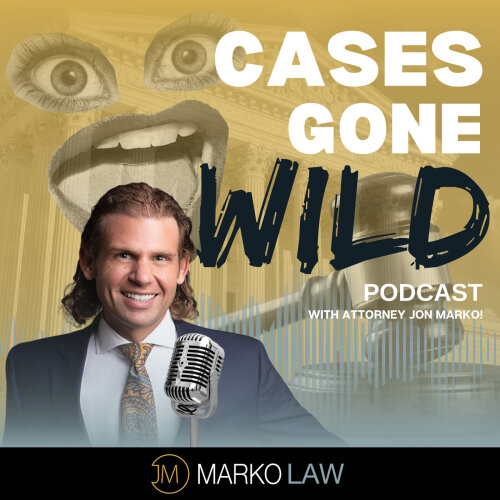Best Wrongful Death Lawyers in Detroit
Share your needs with us, get contacted by law firms.
Free. Takes 2 min.
List of the best lawyers in Detroit, United States
About Wrongful Death Law in Detroit, United States:
Wrongful death law in Detroit, United States allows family members of a deceased individual to seek compensation when their loved one's death was caused by the negligence or intentional actions of another party. This legal avenue aims to provide financial support to those left behind and hold responsible parties accountable for their actions.
Why You May Need a Lawyer:
You may need a lawyer in cases of wrongful death to navigate the complex legal processes, gather evidence, negotiate with insurance companies, and represent you in court. Having a lawyer on your side can ensure your rights are protected and help you receive fair compensation for your loss.
Local Laws Overview:
In Detroit, Michigan, wrongful death cases are governed by specific statutes that outline who can file a claim, what damages can be sought, and the time limits for filing a lawsuit. It's important to understand these laws to have a successful case outcome.
Frequently Asked Questions:
1. Who can file a wrongful death lawsuit in Detroit?
Generally, the deceased person's spouse, children, parents, or siblings can file a wrongful death lawsuit in Detroit.
2. What damages can be sought in a wrongful death case?
Damages that can be sought in a wrongful death case may include medical expenses, funeral costs, lost income, pain and suffering, and loss of companionship.
3. Is there a time limit for filing a wrongful death lawsuit in Detroit?
Yes, there is a statute of limitations for filing a wrongful death lawsuit in Detroit, typically within three years of the date of death.
4. How is fault determined in a wrongful death case?
Fault in a wrongful death case is determined by proving that the defendant's negligence or intentional actions directly caused the death of the victim.
5. Can I still file a wrongful death lawsuit if criminal charges have been filed?
Yes, you can still file a wrongful death lawsuit even if criminal charges have been filed against the responsible party.
6. What is the role of insurance companies in wrongful death cases?
Insurance companies may be involved in wrongful death cases to provide compensation to the victims' families, but they may also try to minimize payouts. It's important to have legal representation to negotiate with insurance companies.
7. What evidence is needed to prove wrongful death?
Evidence needed to prove wrongful death may include medical records, witness statements, expert testimony, and documentation of the victim's financial losses.
8. Can a settlement be reached without going to court?
Yes, it is possible to reach a settlement in a wrongful death case without going to court through negotiation and mediation.
9. How much does it cost to hire a lawyer for a wrongful death case?
Many wrongful death lawyers work on a contingency fee basis, meaning they only get paid if you receive a settlement or court award. It's important to discuss fees with your attorney before proceeding with your case.
10. What should I do if I suspect wrongful death?
If you suspect wrongful death, it's important to contact a lawyer as soon as possible to discuss your options and determine the best course of action for seeking justice and compensation for your loss.
Additional Resources:
If you need legal advice or assistance with a wrongful death case in Detroit, you can contact the State Bar of Michigan or local legal aid organizations for referrals to experienced attorneys who specialize in this area of law.
Next Steps:
If you believe you have a wrongful death case in Detroit, it's crucial to seek legal help promptly. Schedule a consultation with a wrongful death lawyer to discuss your situation, evaluate your options, and determine the best course of action to pursue justice for your loved one.
Lawzana helps you find the best lawyers and law firms in Detroit through a curated and pre-screened list of qualified legal professionals. Our platform offers rankings and detailed profiles of attorneys and law firms, allowing you to compare based on practice areas, including Wrongful Death, experience, and client feedback.
Each profile includes a description of the firm's areas of practice, client reviews, team members and partners, year of establishment, spoken languages, office locations, contact information, social media presence, and any published articles or resources. Most firms on our platform speak English and are experienced in both local and international legal matters.
Get a quote from top-rated law firms in Detroit, United States — quickly, securely, and without unnecessary hassle.
Disclaimer:
The information provided on this page is for general informational purposes only and does not constitute legal advice. While we strive to ensure the accuracy and relevance of the content, legal information may change over time, and interpretations of the law can vary. You should always consult with a qualified legal professional for advice specific to your situation.
We disclaim all liability for actions taken or not taken based on the content of this page. If you believe any information is incorrect or outdated, please contact us, and we will review and update it where appropriate.










